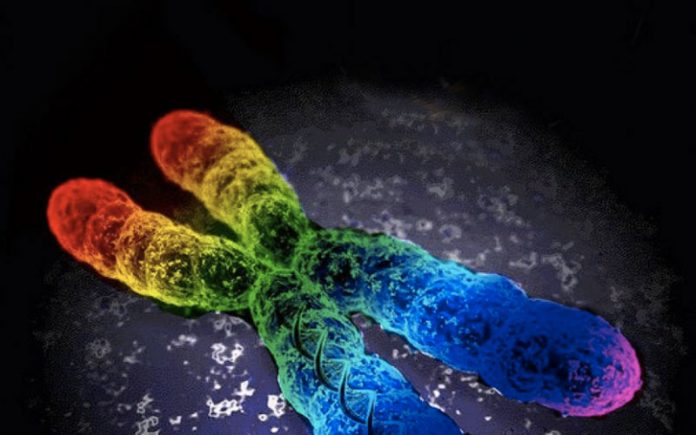By reading the current headlines, you’d think the age-old debate on the so-called “gay gene” has finally been settled. “What do the new ‘gay genes’ tell us about sexual orientation?” asks New Scientist. “We may have just identified genetic evidence of male sexual orientation,” says Science Alert. The U.K’s Telegraph is telling “homophobes” to pack their bags. Case closed.
Is any of this true? Not in the slightest.
According to Uproxx, the latest study focused on “gene expression and sexuality” by sequencing “the genomes of 1077 men who identified as gay and 1231 men who identified as straight.”
“What it found was that there were two more very slight genetic differences, on chromosome 13, which affects the hypothalamus, which is involved in the autonomic nervous system and chromosome 14, which affects the thyroid,” reports Uproxx.
As Uproxx notes, “we are talking about tiny, tiny differences here, and there’s no one gene that shifts somebody to a point on the sexuality spectrum.”
They continue: “Instead, it’s looking more and more like it’s a number of genetic changes that add up over gestation, and likely beyond, that determine where somebody falls. Our sexuality may be driven, in part, by individual genes. But it’s not the whole picture, and social pressures, the environment we grow up in, and a host of other factors may play into how we do, and don’t, express our sexuality publicly. Genetics are the instrument, but the song played on that instrument is, by and large, still mysterious.”
The largely left-leaning Newsweek said the study found a “weak association between several genes and sexual orientation.” Scientists associated with the study also went on the record to say that people should caution themselves before shouting “gay gene” from the hilltops.
“We know that sexual orientation has some hereditary or genetic contributions,” said Dr. Alan Sanders, a psychiatrist at NorthShore University HealthSystem Research Institute and an author of the study. “A common scenario in this kind of research is that you’ll hear people use a sort of shorthand like ‘the gay gene,’ which is not really accurate at all.”
More from Newsweek:
Sexual orientation may spring only in part from a person’s genes. Sanders estimated that contribution might be about 30 percent; other factors in society and the environment likely also play a large role in shaping a person’s sexual identity.
However, these results come with a raft of caveats. The sample was limited in several ways: about 1,000 gay men—which isn’t that many people for this kind of study—were recruited at events like gay pride parades and had their genomes analyzed. All of the men were white. And people who identified as bisexual were excluded from the analysis.
Two scientists were highly critical of the study when speaking with Science Media Center, alleging that the sample sizes were too small and that no independent study has replicated the findings.
“The sample size is small, the results have not been replicated in an independent study and the level of evidence presented doesn’t meet the threshold of significance typically required within the field,” wrote Gil McVean, a statistical geneticist at the University of Oxford. “I don’t think the work would have been published if it were on a less controversial topic. It is—at best—preliminary.”
In sum, the study just confirms what scientists have already for the most part assumed; sexuality may have only a partial link to DNA while environmental, social, familial and psychological factors should not be discounted.
Source: Daily Wire
 Register your interest for Daniel Secomb's new book, "Politics of the Last Days"
Register your interest for Daniel Secomb's new book, "Politics of the Last Days"
Daniel's new book explores the integral and fascinating role that politics will play in the end times.
He demonstrates that political philosophy is actually underpinned by biblcal principles and that by examining the political history of the past can give us a fascinating glimpse into how Biblical end times events will unfold.
Be sure to sign up with your name and email address to be notified of updates and the upcoming release date of the book.
















